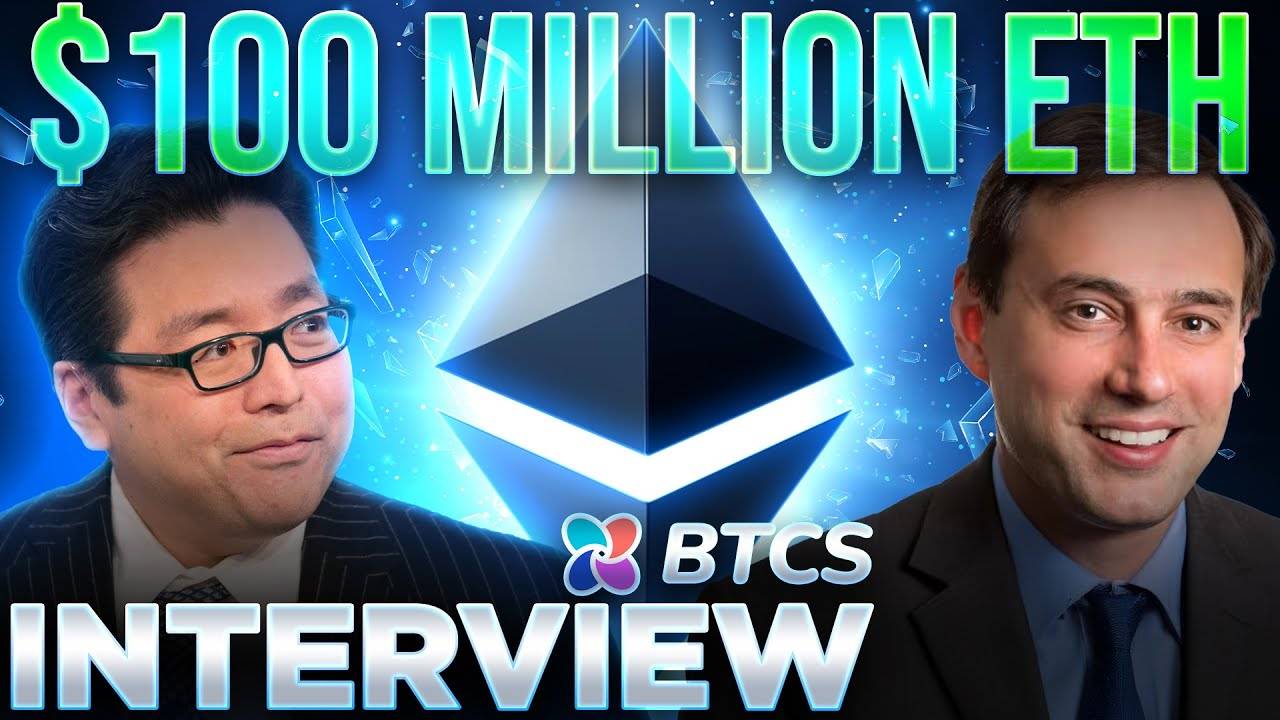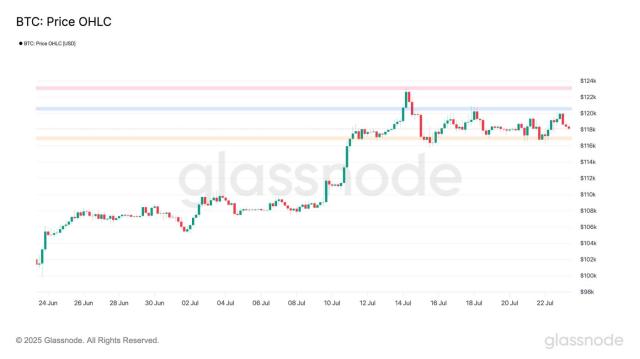Organized & Compiled by: TechFlow

Guest: Carles Allen, CEO and Chairman of BTCS
Host: Paul Barron
Podcast Source: Paul Barron Network
Original Title: $100mil Ethereum Mega-Strategy!🔥$BTCS CEO Charles Allen INTERVIEW
Broadcast Date: July 8, 2025
Key Points Summary
Companies with Ethereum strategic reserves have become darlings of the US stock market, with their stock prices rising to varying degrees.
The key drivers and leaders behind these companies are playing a massive role in this crypto asset reserve boom.
(Related Reading: ETH Reserve Companies Become US Stock Market Favorites, Reviewing 4 Star Enterprises' Business and Driving Forces)
Recently, BTCS Inc. announced its strategic plan to raise $100 million in 2025 to purchase Ethereum and support the expansion of its ETH-centric infrastructure model.
This podcast invited BTCS CEO Charles Allen to explain how the company's strategy creates long-term value by increasing per-share ETH holdings, driving scalable revenue growth, while minimizing shareholder equity dilution.
[The rest of the translation follows the same professional and accurate approach, maintaining the original structure and technical terminology.]When analyzing your business model and operations, I noticed you have multiple revenue centers. I also saw a tweet of yours that detailed how these centers are built. On your website, these contents are clearly categorized, such as builders, node operations, and chains. Since your business has fully shifted to the Ethereum ecosystem, why not directly change the company name to make it clearer to the public that this is an Ethereum-related business, rather than a Bitcoin one?
Charles:
This is a very interesting question. Actually, BTCS stands for Blockchain Technology Consensus Solutions, which is indeed quite apt. We focus on the consensus mechanism of blockchain technology, providing consensus services, running infrastructure, and responsible for Block construction, so this name is very reasonable.
We have indeed considered changing the company name, but this would require a lot of effort and resources. Although many people have suggested we add "Ethereum" to our name, we currently choose to maintain the status quo. Additionally, we are also building Blocks on the Financial Chain, which is a fork of Ethereum. Block construction has become our primary source of income, accounting for 80% of our first-quarter revenue. We expect the second quarter's revenue to set a new record, exceeding $2.3 million from the fourth quarter of last year.
To help everyone better understand, the Blocks we construct in the Ethereum network account for 2.7% of total Blocks. In other words, 2.7% of all transactions in the Ethereum network are processed by our Block builder. If our validator nodes can continue to provide Consensus and the Block builder can run stably, our business scale will further expand.
We view the Block builder as a standardized technical module, similar to a device that can run on 120-volt electricity. If we add an adapter to it, we can connect to other more scalable chains. In fact, we have successfully applied this technology to Binance. You can imagine it like upgrading a device to run on 240-volt electricity. This is why we insist on using the name "Blockchain Technology Consensus Solutions" rather than directly naming it an Ethereum-related brand.
Nevertheless, Ethereum remains our core financial asset. Our goal is to continuously increase the number of ETH per share while driving sustained revenue growth. We hope to achieve this through stock price appreciation, strategic capital raising, and by combining DeFi and traditional financial metrics.
Based on my judgment, approximately $200 million to $1 billion may flow into digital asset-related fiscal strategies and public offices. As more institutions and investors join, they tend to become "trend-following" players. For BTC, you can see Michael Saylor's strategy is particularly prominent, along with active participation from MetaPlanet and David Bailey. However, in the public market, such trades usually follow a fixed successful pattern. Typically, a high-profile individual serves as the chairman of the new company, which usually has a market value below $10 million and may have a business model in trouble. Subsequently, through a series of operations, the company's market value may rapidly grow, and when these companies submit resale registration statements, many investors choose to exit the market, essentially opening the channel for share resale.
Currently, these companies usually trade close to net asset value (NAV) and begin to rebound. But I believe trading at a premium far above NAV is usually just a short-term speculative behavior, not a long-term sustainable business model. Overall, if lucky, such companies might reach twice the valuation of MicroStrategy, but if unlucky, perhaps only three times. However, trading at 10 times NAV, I think this is a very difficult proposition, because smart hedge funds will intervene, they might short your stock, or conduct arbitrage by purchasing other stocks with different NAV premiums.
Therefore, overall, if the market is rational, although the market is not always rational, digital asset-related fiscal companies should trade at some form of premium, typically based on the company's operational capabilities and actual performance. However, if the valuation differences between different companies are too large, the market will eventually notice this and drive these companies' valuations back to more reasonable levels.
Schwab Excited About Tokenized Stocks
... [rest of the translation continues in the same professional manner]
Currently, many important changes are happening in the Ethereum ecosystem, but I believe many people still haven't realized the profound impact of these changes. I want to play a video that involves Polymarket and how it affects political structures.
Video content:
"We are all trying to figure out the direction of things. You know, we all saw him involved, but it actually only truly gained widespread attention in the past 72 hours."
"It's worth noting that (in the Polymarket New York City mayoral election prediction) Andrew's votes were above at the time. At that time, I told my team that Zohran would win this race. We strategically chose not to participate in the crowded Democratic primary, and instead decided to run as an independent candidate. Initially, everyone thought it was ridiculous, and they asked me: 'What exactly are you doing?' Now who would still mock me? I said to Andrew: 'Are you really that arrogant? I am the mayor of New York City. Do you think I would sit back when you just lost to Zohran by 12 points? This is extreme arrogance.'"
The Gaming Industry Will Surpass National Economies & Michael Saylor Buying ETH?
Paul:
Now we have Polymarket, which can be called the guiding force of Ethereum in the political realm. You can look at a tweet posted by Ferguson on the Immutable platform. He mentioned, what would the scenario be if GTA launched a game token? We are starting to see some major Bitcoin supporters, like Michael Saylor and Microstrategy, seemingly moving in this direction. How long do you think it will take them to enter the Ethereum ecosystem? Will they choose to join?
Carles:
Extreme Bitcoin supporters may never choose to join the Ethereum ecosystem, primarily because Bitcoin's total supply is fixed at 21 million, which is its cap. Ethereum, on the other hand, has a more flexible issuance mechanism that can even achieve a deflationary model. So, I would be very surprised if Michael Saylor turns to Ethereum, as his attitude towards Ethereum seems not very positive. I would typically categorize him as an extreme Bitcoin supporter, and many of these people may never change their stance. However, for those who are more pragmatic, they will notice Ethereum's utility and realize its potential, like "Oh my god, this technology is really amazing! It can completely transform the way global assets flow." This transformation may include tokenized securities, concert tickets, or even stablecoin issuance, which are all good examples. I believe these technologies will become the new standard for global asset flow, but Bitcoin's extreme supporters may still not join.
Paul:
This is indeed interesting. I think as cryptocurrencies develop, especially with Bitcoin and Ethereum's gradually emerging leadership in the market, they are beginning to enter Wall Street. I feel that all current trends are pointing in this direction. And Ethereum continues to maintain very strong competitiveness in the entire ecosystem.








